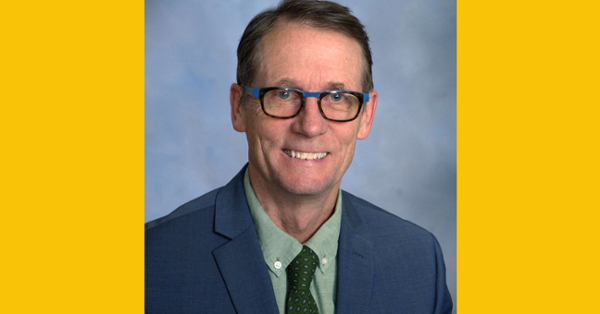Still growing: Rowan University opens new School of Nursing & Health Professions
Still growing: Rowan University opens new School of Nursing & Health Professions

Rowan University’s Board of Trustees has approved the creation of a new School of Nursing & Health Professions, a move that’s expected to expand programs and opportunities for students.
Dr. Peter Rattigan, a professor of health and exercise science, will serve as the school’s founding dean. A Rowan faculty member since 2000, Rattigan previously served as an associate dean in the College of Science & Mathematics, where the school was housed until July 1 this year.
Provost Tony Lowman called Rattigan an outstanding educator and with a track record of leadership who will drive the new school forward.
“Rowan University is committed to preparing students for these much-needed jobs in health care,” Lowman said. “Given the national nursing shortage we’re seeing, it’s the right time for the University to invest in the health and well-being of our region by growing the School of Nursing & Health Professions. Peter will ensure Rowan continues its tradition of excellence, while giving more students access to a high-quality, affordable education.”
The School of Nursing & Health Professions is expected to increase the visibility of its nursing programs, lead to joint allied health professions offerings, provide oversight for internships and clinical affiliations, foster relationships with other colleges and the medical schools, and offer diverse educational pathways for students interested in nursing and health professions careers.
Nationally, the shortage of registered nurses is expected to worsen over the next decade, as more nurses—and nurse educators—retire or leave the workforce. And, as more hospitals strive to achieve Magnet Recognition by the American Nurses Credentialing Center, the health care industry is seeing a growing demand for nurses with bachelor’s and graduate degrees.
The COVID-19 pandemic has also demonstrated the vital roles skilled health professionals serve in public health, health promotion, nutrition and exercise science.
“By becoming its own stand-alone school, the School of Nursing and Health Professions can focus on strategic program growth and preparing more students to fill these critically important jobs,” Rattigan said. “Even before the pandemic, U.S. nursing schools turned away more than 80,000 qualified applicants because they just didn’t have the capacity to train them. More broadly we know that health care and health professions careers comprise six of the top 10 fastest-growing occupations, according to the Bureau of Labor Statistics.
“We also know there’s a need for a more diverse workforce,” Rattigan continued. “We’re looking forward to giving aspiring nurses and health professionals a quality education that’s also accessible, affordable and close to home.”
The new school is a major milestone for Rowan’s nursing program, added Dr. Mary Ellen Santucci, a registered nurse and associate professor who heads the Department of Nursing.
“When I started here six years ago, we were Rowan’s best-kept secret,” Santucci said. Today, the number of master’s students studying to become nurse practitioners at Rowan has more than doubled and the program now has three nurse practitioner concentrations: adult gerontology acute care, family, and psychiatric mental health. The school also offers graduate programs for nurses interested in becoming educators or executives.
More nursing students are also streaming into the bachelor’s degree program through Rowan’s 3+1 arrangement with affiliated community colleges, Santucci said. The program allows nursing students to graduate with a Bachelor of Science degree for about $30,000, or what many institutions charge for one year of tuition.
The Department of Health & Exercise Science offers five undergraduate programs, three graduate programs and three certificates designed to prepare students to become health care professionals: from registered dietitians and public health workers to athletic trainers and clinical exercise physiologists.
With the creation of the new school, faculty in both departments are collaborating to expose students to other health disciplines, said Dr. Greg Biren, who leads the Department of Health & Exercise Science.
“Years ago, everyone was in their own silo,” Biren said. “But the human body is so complex, you can’t just exercise or just eat right or just manage stress and expect to be healthy. Everything is interrelated. We’re preparing our students to think holistically, so when they go into any health care field, they’ll already have connections with the other disciplines. We all need to work together.”